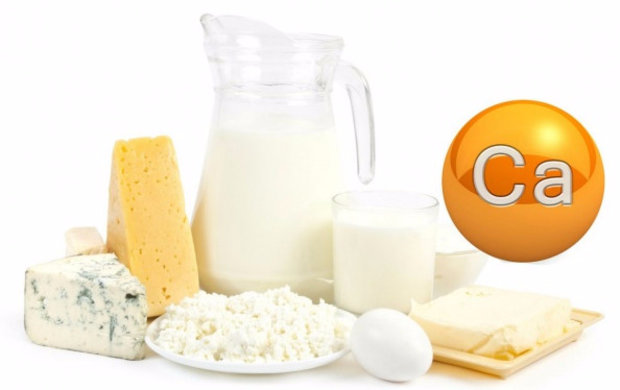Why Pregnant Women Need Calcium
During the period, the woman's body experiences serious stress and heavy stress, sometimes it even becomes necessary to additionally feed it with special preparations in order to avoid a deficiency of any or a mineral necessary for proper development. Most often, the doctor observing the expectant mother prescribes calcium preparations for her, which for pregnant women has long been the most indispensable macronutrient and building material both for her bone tissue and for the correct formation of the fetal skeleton.
The role of calcium in the body
In the body of an adult, calcium is found mainly in the skeleton and teeth, but besides this, it is also participates in various life processes:
- Muscle and neuronal responses.
- Affects blood clotting.
- It has anti-inflammatory and anti-allergic effects.
- Takes part in the activation of certain enzymes and hormones.
- Participates in the composition of the nucleus, cell membranes, tissue fluids.
- Increases the body's resistance to stress.
- Helps remove heavy metal salts from the body.
- It has an antioxidant effect.
- It has a positive effect on insulin and blood glucose levels.
But the most important function of this useful macronutrient is participation in the formation of bones, hair, teeth, nails. Therefore, its biological role is so great for a woman during the period of expectation of a child, especially for strengthening her bones, on which a heavy load gradually increases with each trimester.
How much do you need?
The daily calcium intake for pregnant women differs significantly from the norm for a person who is not experiencing a significantly increasing load. During the exciting period of gestation, it increases by about one and a half to two times. According to medical scientific estimates, the daily requirement of a woman in a position is 1500 mg per day.
A ripening fetus in the womb actively absorbs calcium as it grows, in the first trimester it should receive at least 3 mg per day, and already during the third trimester - the main stage in the formation of the baby's skeleton, it needs a dose of 250 or even 300 mg building macronutrient.
Deficiency symptoms
As you know, the macronutrient that is so necessary for the human body is not produced in it on its own, therefore, due to the developed reflex habit, it is taken from food and special preparations.

The lack of this mineral, especially during the period of bearing a child, threatens miscarriage and premature, hypertension, cramps of the calf muscles and the most dangerous - eclampsia.
To prevent an impending deficiency of an element, you need to understand in time the alarming signals that the body gives, that is symptoms of this trouble:
- The earliest signs of deficiency are anxiety, tension, and irritability - detrimental effects on the nervous system.
- Increased fatigue.
- Vomiting and nausea in the first trimester.
- The appearance of dryness, a noticeable loss of its elasticity, its "lifeless" appearance.
- and the nails become dull.
- Caries and defects of tooth enamel are manifested.
Important! At the first suspicion of a lack of calcium in oneself and, even more so, when the first symptoms are found, it is necessary to urgently contact your gynecologist. Indifference to such a state and self-treatment in the future can lead to irreversible tragic consequences.

How to fill the gap?
If the lack of the "building" mineral nevertheless arose for some reason, the doctor observing the current pregnancy writes out to the future woman in labor all the necessary recommendations for replenishing it in the mother's body.
Calcium-rich foods
First of all, you should pay attention to products containing useful substances, including calcium, which will be well suited for the daily diet of pregnant women. It is now generally known that it is best will be absorbed together with such food products:
- Cod liver, fish (in addition to the "building" macronutrient, it is enriched with vitamin D, phosphorus and magnesium).
- Beets, garlic, celery, parsley, legumes.
- Dairy products: cottage cheese, milk, cheese.
- Fruits and berries: currants, gooseberries, strawberries, cherries, etc.
- Rye bread and nuts.
- Broccoli, white cabbage, turnip leaves.
- Eggshell, pre-calcined in a pan and ground to a powder, egg yolk.
- Sesame and poppy seeds are the leaders on this list, they contain much more of this mineral than cottage cheese and milk (10 times).
Did you know?The best time to absorb calcium is at night. It is at this time that the parathyroid glands work. Thus, a glass of milk drunk before going to bed ensures the complete assimilation of the element it contains.
Pharmacy preparations
If it is impossible to correct hypocalcemia with the help of natural nutrition, the doctor prescribes calcium intake for the expectant mother, which is contained in special mineral complexes suitable for pregnant women, always in tablets and with an individual recommendation which one should be chosen.
As a rule, mineral complexes prescribed by a doctor already include auxiliary vitamins and substances to normalize calcium absorption. Taking such drugs is usually prescribed already in the second trimester, not earlier than 12 weeks, and their daily dose is divided into several doses in order to increase the efficiency of absorption into the cells of the body.
It should also be remembered that any advertised calcified preparations are not dietary supplements, and they require strict control in their use under the supervision of a physician. Even such a famous complex as "Calcium d3 Nycomed" can be very dangerous during pregnancy if the reception was started chaotically, without calculating the dosage.
What is needed for better assimilation?
In order to promote better absorption of calcium, you must adhere to some rules. For example, for this a person needs daily saturation with vitamins A, C, E, D, the entire composition of group B, fatty organic and amino acids. And digestibility is favored by:
- Sun exposure, it is thanks to it that vitamin D is produced in the skin.
- The vitamins mentioned above, as well as the macronutrient phosphorus.
- Vitamin B6, magnesium and silicon - the latter is similar to calcium in the process of bone hardening.
- Selenium, which helps transport calcium to bone cells.
- Sufficient level of acidity of gastric juice.
- Iron.
Important! Vitamin D is essential for the proper absorption of calcium. It helps it to be absorbed and properly "processed" in the body. Without this vitamin, the building macronutrient will be excreted from the body unchanged, without lingering anywhere. That is why all calcium supplements for all people, including pregnant women, contain both of these components.-and calcium and vitamin D.

Is oversupply dangerous?
As well as a deficiency, an overabundance of something useful can cause irreversible consequences, especially when it comes to medicinal or vitamin preparations. The macronutrient calcium is no exception.
This situation can occur if a woman in a position abuses calcium complexes and foods with its high content. Increased absorption in the gastrointestinal tract is also possible.
Symptoms of hypercalcemia are as follows: nausea, vomiting, loss of appetite, impaired renal function, weakness, confusion, and even hallucinations.
To quickly remove a large amount of the mineral, it is necessary to urgently reduce the sources of calcium intake in the body, as well as drugs and foods that help it to be absorbed. In addition, it is hard to consume a large amount of liquid for a quick washout, but provided that the kidney function is not impaired.
The danger with an excess of calcium is the risk of developing malignant tumors, paralysis and other severe hereditary diseases. The maximum concentration of the mineral in the blood should not exceed 2.6 mmol / l.
Did you know? Recent studies have shown that an excess of calcium in the body can positively affect the growth of some cancer cells, especially prostate cancer. But at the same time, it reduces the likelihood of developing breast cancer.
In addition to proper, balanced nutrition and calcium-containing preparations prescribed by the doctor, the expectant mother should not forget about walking in the fresh air and being in a good mood.
 How to have the perfect date when you're not romantic
How to have the perfect date when you're not romantic What diseases do you need to drink coffee - benefits and effects
What diseases do you need to drink coffee - benefits and effects All my brown eyeliners
All my brown eyeliners